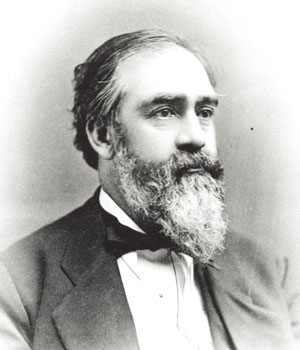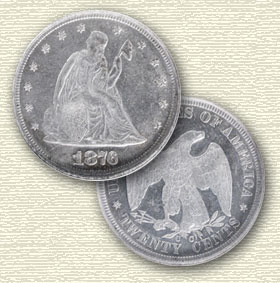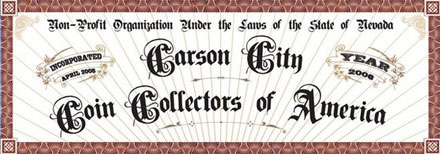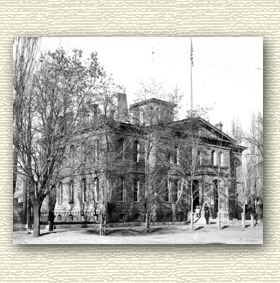Henry F. Rice
September 1870 – June 1873
 In September of 1870, Henry F. Rice, a local Wells Fargo agent, and a good friend of Abe Curry’s, became the second superintendent at the Carson City Mint. Rice had been selected as one of the commissioners back in the mid-1860s to oversee the efforts to have a mint established in Nevada’s capital city, and had thrown the second shovelful of dirt at the groundbreaking ceremony in July of 1866.
In September of 1870, Henry F. Rice, a local Wells Fargo agent, and a good friend of Abe Curry’s, became the second superintendent at the Carson City Mint. Rice had been selected as one of the commissioners back in the mid-1860s to oversee the efforts to have a mint established in Nevada’s capital city, and had thrown the second shovelful of dirt at the groundbreaking ceremony in July of 1866.
Respected as one of Carson City’s stalwart citizens, Rice was considered a superior candidate to succeed Curry at the mint. Though limited to the production of a scant number of half dollars (approximately 13,000), and a modicum quantity of gold half eagles and eagles during the first three months of Rice’s term at the end of 1870, the Carson Mint’s output escalated sharply (relatively speaking) in Rice’s first full year at the helm in 1871. Dimes were added that year, bringing the total number of denominations produced to seven.
Coinage production increased once again in 1872 under Rice’s command, with a noticeable spike in the mintage of gold double eagles (almost 30,000 pieces struck).
By 1873, signs of trouble appeared on the horizon, although it is not entirely clear what precipitated them. The nation itself, was in turmoil, as the government attempted to resolve what was perceived as an ineffective monetary system, exacerbated by a simmering conflict between the silver mining industry and the Big Banks backed by the voice of the cantankerous “gold bugs.” All of this had nothing to do with Henry F. Rice, of course, but it certainly added to the drama.
At one point, charges were filed against the Carson Mint, alleging that slightly sub-par coins were being produced, and possibly that assays were not being performed properly. Nothing ever came of these charges, but there were backhanded insinuations made against Rice’s management practices; again, never substantiated.
Nevertheless, right around the time that the new With Arrows silver coinage and the new Trade dollars were being struck, Rice resigned his superintendent’s position, in protest over the firings of his coiner Chauncey N. Noteware, and his melter-refiner, R. P. Andrews.
Rice returned to his job at Wells Fargo, and also served on the board of commissioners in Ormsby County. He also started up a brokerage business with a partner, which unfortunately fell victim to a nationwide financial panic in 1877. The beleaguered Rice commited suicide while under treatment at an asylum in Stockton, California in November 1877. His legacy as a pillar of the community in Carson City has been preserved to this day, and until evidence surfaces to contradict it, this is how Mr. Rice will be remembered.


